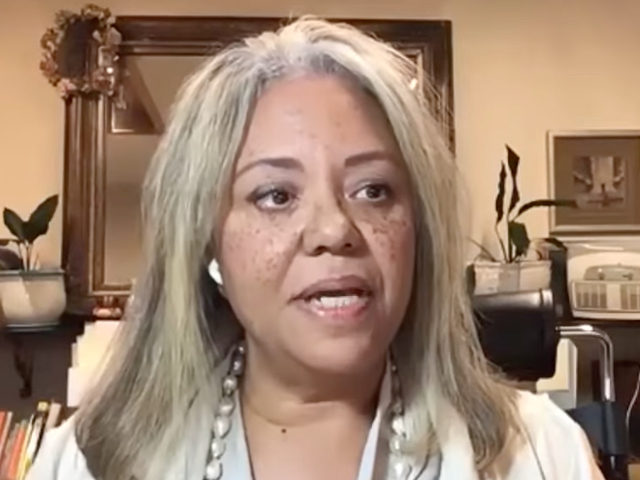Robin Morris Collin, appointed by Biden’s Environmental Protection Agency (EPA) administrator Michael Regan to be his senior adviser, says that environmental reparations would help heal “our relationships to each other and to nature.”
Morris Collin was appointed as the EPA’s senior adviser to the administrator to advise the agency on how to “advance environmental justice and civil rights in communities that continue to suffer from disproportionately high pollution levels, including low-income communities and communities of color.”
The EPA’s press release touted her prior history of working on environmental justice on the local, state, and federal levels and is one of the first “U.S. law professors to teach sustainability courses in a U.S. law school.” She also was the founding chair of the State of Oregon’s Environmental Justice Task Force.
In 2020, during a virtual lecture on “climate justice” with the Oregon Humanities Center, she explained that “environmental reparations” should be given to “communities injured by governmental and industrial policies and practices” to “change the ecology of injustice into an ecology of repair.”
During her lecture, Morris Collin said that environmental reparations are needed to “provide justice to present and future generations” since “neither disaster relief nor social welfare goals alone will provide the intergenerational restoration of nature that is required now.”
“We must use this moment that we have been given to change our human ecology of injustice. Environmental reparations are a way to change the ecology of injustice into an ecology of repair,” she claimed. “They are not blood money, in the sense of cash payment for wrongs done.”
Morris Collin said that, in her opinion, environmental reparations would help “rebuilding and re-energizing the same systems that have created the current geography of oppression.” She argued that the reparations need to be “framed” in a way that shows it would “accomplish [the] healing of our relationships to each other and to nature.”
“We cannot heal nature without healing ourselves, and we cannot heal ourselves without a connection to nature,” she noted while giving “five guiding principles as a guide to doing environmental reparations.”
Her principles go from wanting to implement equity-based projects first to have better outcomes for the oppressed people, “Intentional linkage of living natural ecologies, and systems with disproportionately historically targeted communities, inclusion of the local community to make relationships, “Land use laws, planning, and development must embrace the use of zoning and planning to accommodate environmental reparations by communities,” and “Community capacity building…for self care.”
Additionally, Breitbart News previously wrote that Morris Collin and her husband, Robert Collin, who’s known as a prolific writer, co-authored a paper in 2005 where she called “private ownership of land” an “illusion.” The couple wrote, “the illusion of private ownership of land allowed the privileged to feel unconnected to the consequences of their conduct towards the living systems of which those lands are a part.”
“Privileged societies and persons who are disenfranchised, especially societies based upon natural resource consumption, will view any attempt at regulation as an intrusion on their property and freedom,” their paper added. “But, land as private property, like other natural resources, may have to be subordinated to the common good.”
So radical. https://t.co/QWXPigc7b7
— Breitbart News (@BreitbartNews) May 6, 2022
As Breitbart noted, her radical views are relevant since she was appointed by EPA’s Regan to “advance environmental justice and civil rights” in areas that “suffer from disproportionately high pollution levels, including low-income communities and communities of color.”
Fox News also reported that the EPA was accepting new applications this year for the department’s Environmental Justice Small Grants Program, which used cash from the $1.9 trillion American Rescue Plan and “had virtually little to do with addressing the impact of the pandemic.”
Jacob Bliss is a reporter for Breitbart News. Write to him at jbliss@breitbart.com or follow him on Twitter @JacobMBliss.

COMMENTS
Please let us know if you're having issues with commenting.